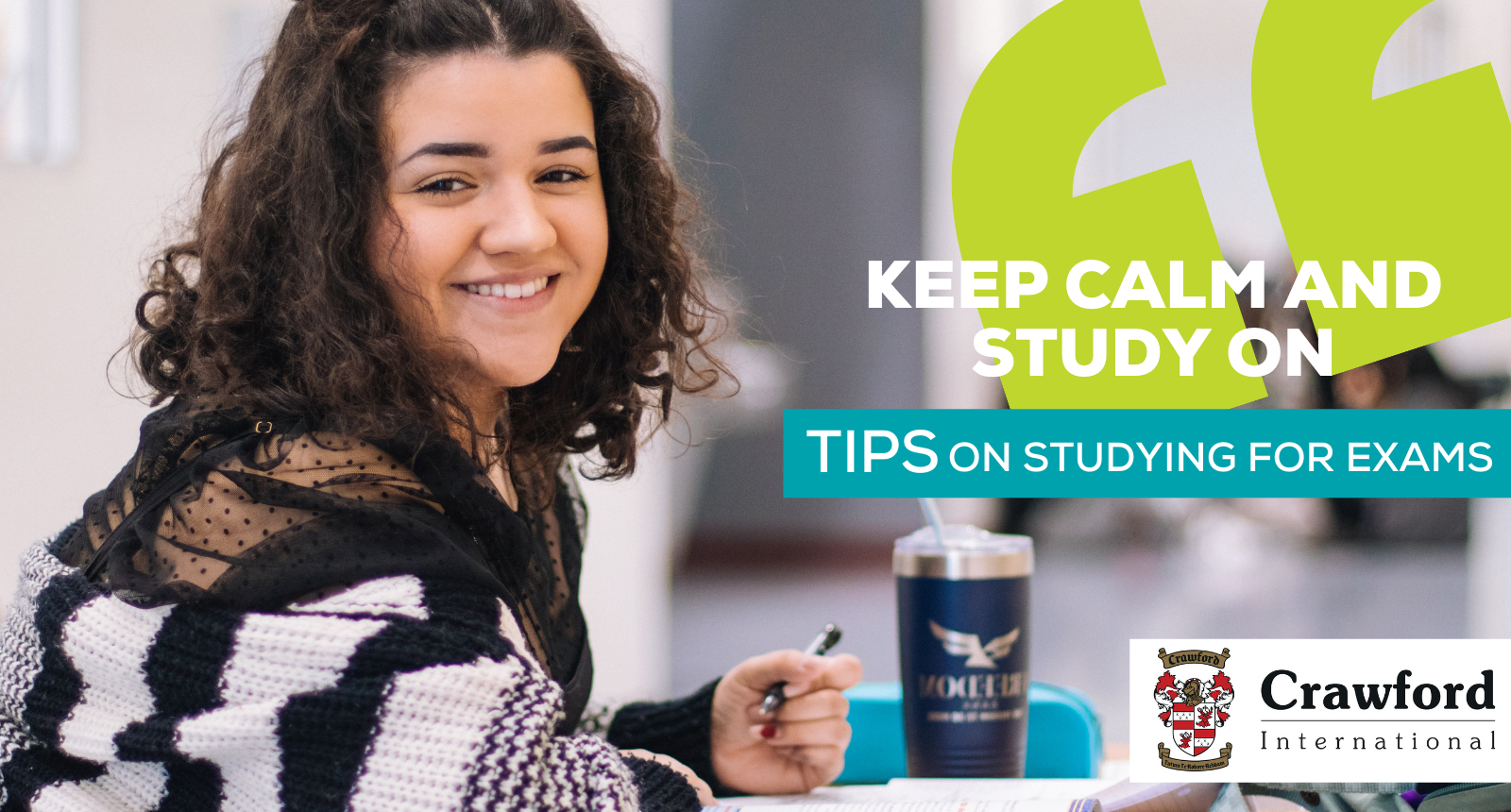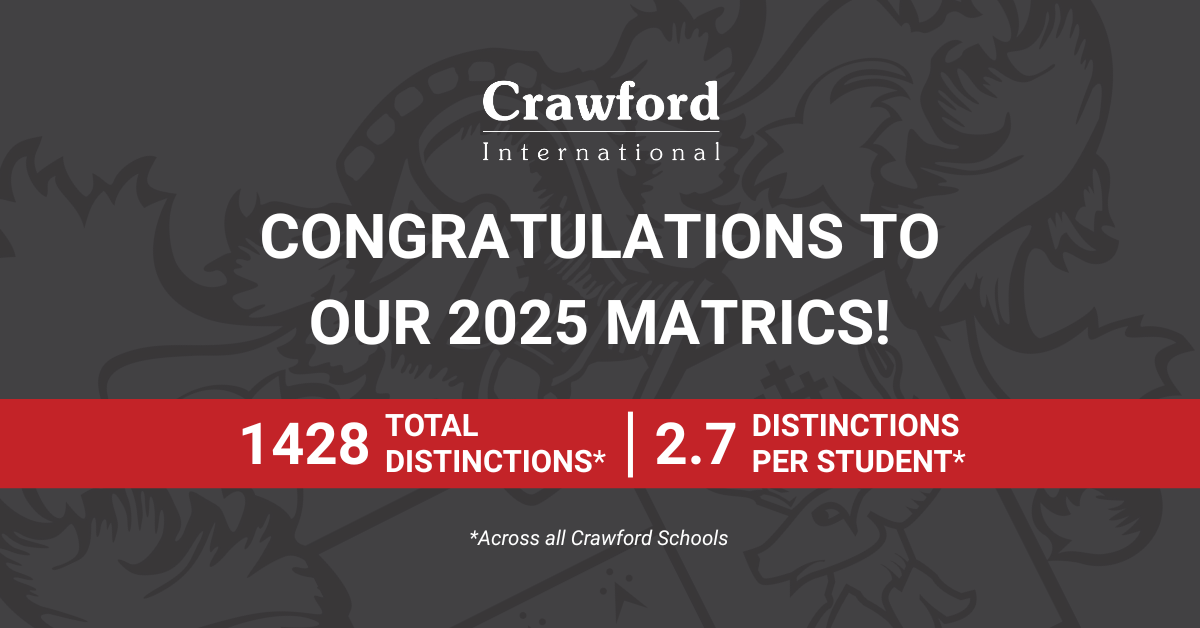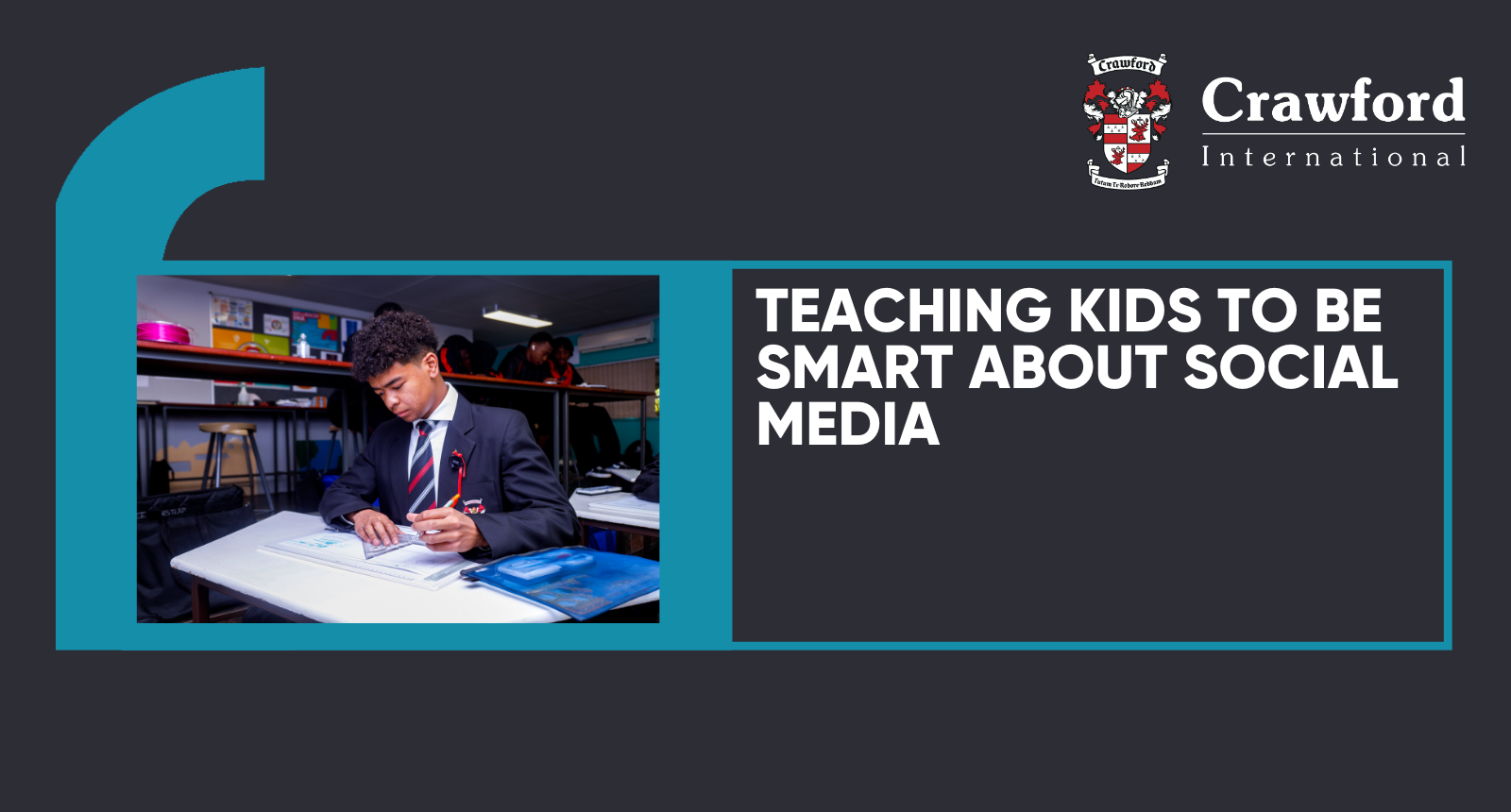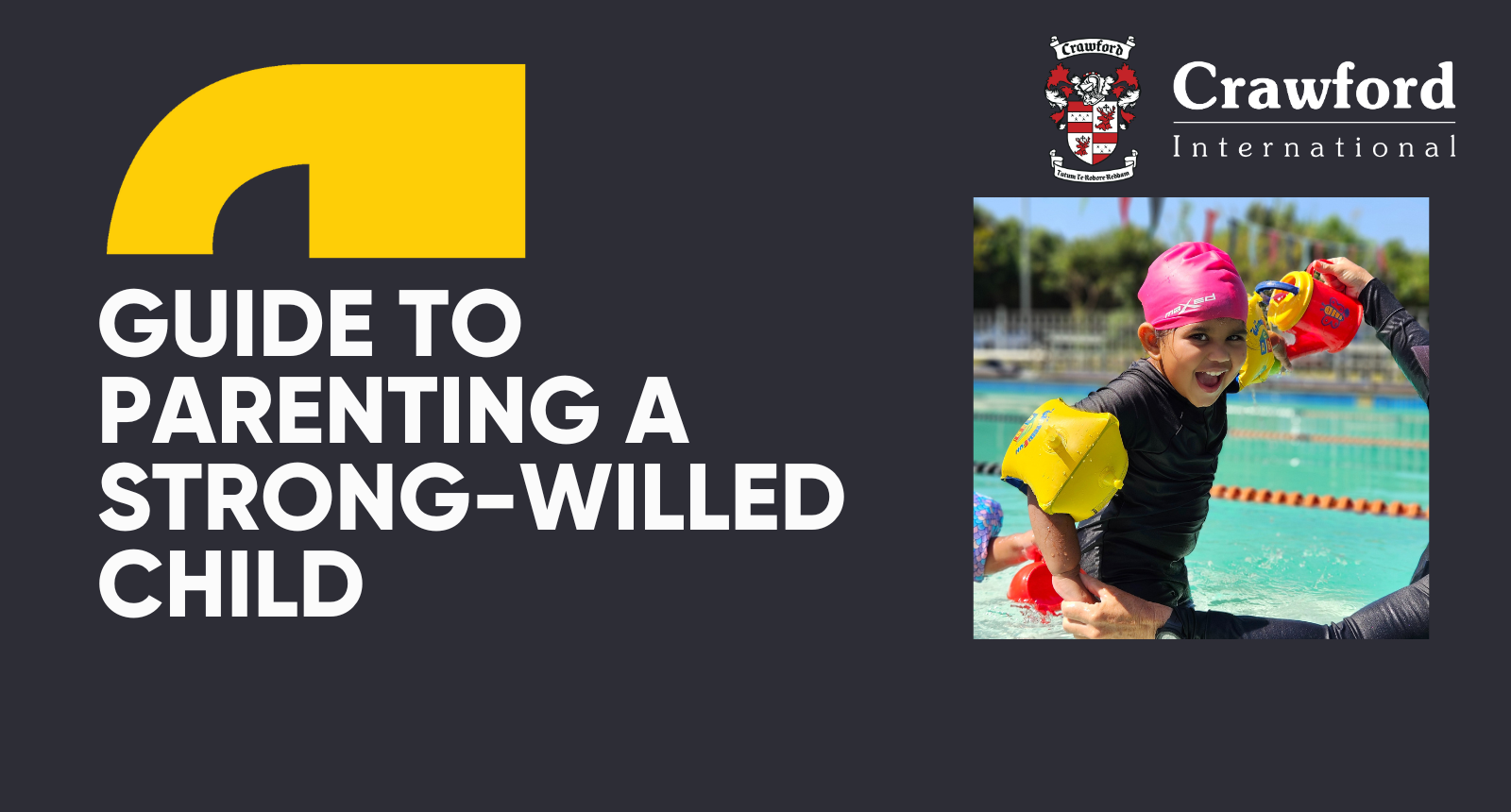Keep Calm and Study On: How to Study for Exams!
ADvTECH Group • March 4, 2022
Send the stress packing and let the learning begin with these tips to study for exams.

Preparation and practice help your child feel equipped with the tools they need to handle exams and tests. So, we’ve put together the most helpful exam study tips to help your child keep calm and achieve.
Learn about how Crawford International teachers support and walk alongside their students here.
It’s all about planning.
Cramming without forethought only results in more stress, so as soon as you or your child get notice of a test or exam, help them draw up a study plan for the days or weeks leading up to it. Break the large task up into smaller chunks, and detail what topics should be covered and how long each study session will be. Try to schedule one to three 30-minute sessions per subject per weekday or weeknight. Also, try to prioritise the subjects your child finds most difficult.
It’s also a good idea to ask the teacher for past exams or tests that you can give your child to practise on – or draft your own. Then “test” your child regularly using these resources so that you can see their progress. They’ll also get a chance to see how the questions are phrased and prepare themselves further through practice tests.
Figure out your child’s learning style
Not everyone retains information the same way, which means not every child can study using the same technique. Once you know what style of learning works best for your child, you can help them with studying tips that work for them.
Written learners do best by writing things down or seeing them being written down. Putting study notes together or completing practise tests work well with these students.
Sound learners are all about hearing information, so they study best by repeating things aloud, listening to certain music when studying, or by answering spoken questions.
Sight learners need visual cues when studying. These include flashcards, pictures, mind maps, charts, even videos.
Movement learners are hands-on students who absorb information through touch and movement. So turning studying into a game or activity will work well (act out what needs to be learnt), use textured paper and different sized pens, and use rhythmic motions like hand-clapping or finger-snapping when reading or reciting facts. Standing desks work well with these learners.
Super smart study hacks
No matter what learning style your child works best with, reading stacks of notes over and over again is rarely effective. A child’s brain needs to be engaged when studying, and sometimes you have to show your learner how to study for exams. So try out different revision techniques, like:
Using flashcards is a great approach for visual learners – write down short, to-the-point facts on pieces of cardboard and stick these up on the walls around the room or house for them to look at.
Mnemonics are songs, rhymes and phrases that help your child remember information. An example of this is My Very Easy Method Just Speeds Up Nothing for recalling the order of the planets in our solar system (Mercury, Venus, Earth, Mars, Jupiter, Saturn, Uranus and Neptune)
Teach to learn. Ask your child to teach what they have learnt to someone else – and if there’s no one to teach, let them talk to their stuffed animals or the plants in the garden!
The art of answering the questions
Studying tips are about more than remembering things, it’s also important to teach your child how to tackle the task of taking a test or exam. The first thing is to read through all the directions and questions before they answer anything.
After that, your child should answer the questions they’re most confident about being able to answer – leave the more difficult ones and come back to them later. On multiple-choice questions, teach your child to cross out the answers they know are incorrect, eliminating them from the start.
The basics matter
Giving your child’s brain and body the power they need to succeed enable better concentration, motivation and memory. A healthy diet rich in leafy green veggies, fatty fish, berries, and walnuts boosts brainpower.
Exercise does too and reduces stress, so encourage your child to take breaks outside and keep up regular extracurricular activities during the stressful exam or test periods. Then make sure your child is getting enough sleep – being tired affects concentration, creativity and mood, a recipe for disaster when it comes to exams and tests. On the day of the exam, make sure they have all the tools they need to feel prepared for what’s to come, like pens, pencils, erasers, calculators, protractors, etc.
Remember to reward your child for all the hard work they’re putting in. Show them you recognise the effort and determination they’ve shown through applying these studying tips by playing their favourite game, watching a movie of their choice, even cooking their favourite meal.
The bottom line is that studying for exams is a skill that is learnt, and getting it right is different for everyone. Mastering a study approach goes a long way to taking the pressure off, and this process helps your child to know and trust in their abilities and give every test and exam their best effort.
With exams being a time of stress, read our helpful article on Teen Mental Health here.












